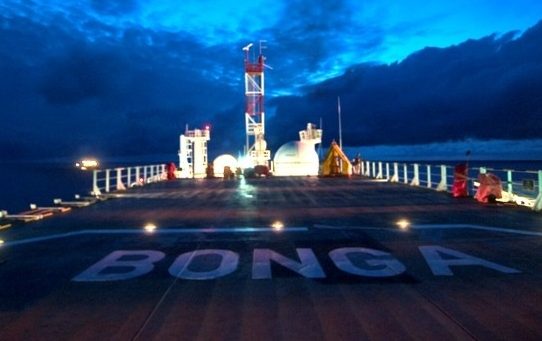
31 August 2011, Sweetcrude, Lagos – The Organisation of Petroleum Exporting Countries’ (OPEC’s) oil production is expected to rise in August to its highest since 2008 due to higher oil exports from Nigeria and smaller increases from Saudi Arabia and other Gulf producers, according to a Reuters survey.
The survey of sources at oil companies, OPEC officials and analysts, released on Tuesday, revealed that supply from the organisation was expected to average 30.15 million barrels per day (mbpd) for August, up from 30.07 mbpd in July.
Nigerria’s government affirmed recently that the country had reclaimed her foremost position as Africa’s largest oil exporter, which she lost to Angola in the wake of unrests in the Niger Delta region and which reduced oil production to an all time low of 1.2 million bpd from about 2.6mbpd in 2006.
Special Adviser to President Goodluck Jonathan on Media and Publicity, Mr. Reuben Abati, was quoted to have said that Nigeria currently produces 2.4 mbpd of oil, courtesy of Federal Government’s amnesty programme, which brought about normalcy in the oil-rich region.
Abati said the 20 per cent increase in oil production had made Nigeria to again retain her position “as Africa’s largest oil exporter, surging ahead of Angola after the insurgency in the country’s militant Niger Delta was quelled.”
But, the Reuters survey indicated no sign yet of Saudi Arabia, OPEC’s kingpin, and other Gulf countries cutting back on the supplies they provided to offset the loss of Libya’s exports.
August’s total is expected to be OPEC’s highest since October 2008, shortly before OPEC agreed to a series of supply curbs to combat recession, based on Reuters surveys. July’s total was also the highest since October 2008.
OPEC’s Gulf members boosted supplies unilaterally after African countries, Iran and Venezuela blocked a Saudi-led proposal to increase output targets at OPEC’s last meeting, which was held on June 8.
The group still has a way to go to close the gap completely between its production and forecast demand. OPEC expects demand for its oil to average 30.88 million bpd in the second half of 2011.
The biggest change this month is in Nigeria, where supply has risen sharply.
Loading programmes showed Africa’s top exporter would export about 2.25 million bpd, its highest since January 2006, most of which has been shipped.
An August 23 declaration of force majeure on Bonny Light crude exports by Royal Dutch Shell’s Nigerian unit was expected to have little impact on supplies in August.
Saudi Arabia has raised output by a further 50,000 bpd this month, the survey found. Sources in the survey said increased refinery processing and use in domestic power plants were the main factors for the increase.
Other Gulf producers Kuwait and the United Arab Emirates have also nudged up supplies.
Output fell in several OPEC members in August, including its second-largest producer Iran.
The biggest fall was in Angola, where supply slipped back after a boost in July. Output is expected to rise in coming months as new fields open such as Total’s Pazflor, which started up earlier than expected.
Iranian supplies slipped further due to a pipeline fire and an oil sales payments dispute with India, which Iran says is now resolved.
Libya’s production declined to a nominal 10,000 bpd in August, although the collapse of Muammar Gaddafi’s rule has raised hopes supplies will resume soon. Pre-war output was 1.6 million bpd.
A delegate from a Gulf OPEC country said last week the Gulf members are unlikely to reduce output in the early phases of a Libyan supply restart because it is unclear how long a significant recovery will take.
Some survey participants say a slide in prices would focus minds in OPEC on supply curbs. Budgetary requirements in Saudi Arabia have risen after setting aside billions for extra social spending to prevent social unrest.
“The OPEC countries, even the strong ones, need higher prices than before,” said an oil analyst who declined to be named. “I’d expect them to cut if prices started moving towards $90 for Brent.”
OPEC has not officially changed its output policy since cutting output by a record 4.2 million bpd in December 2008 to 24.84 million bpd for 11 members, all except Iraq, to combat falling prices and a collapse in demand.
Since the June meeting, OPEC officials have acknowledged the target is no longer valid as supply is so much higher.
OPEC does not provide timely official production figures so the oil industry relies on outside supply estimates from news agencies, consulting firms and government organisations.



